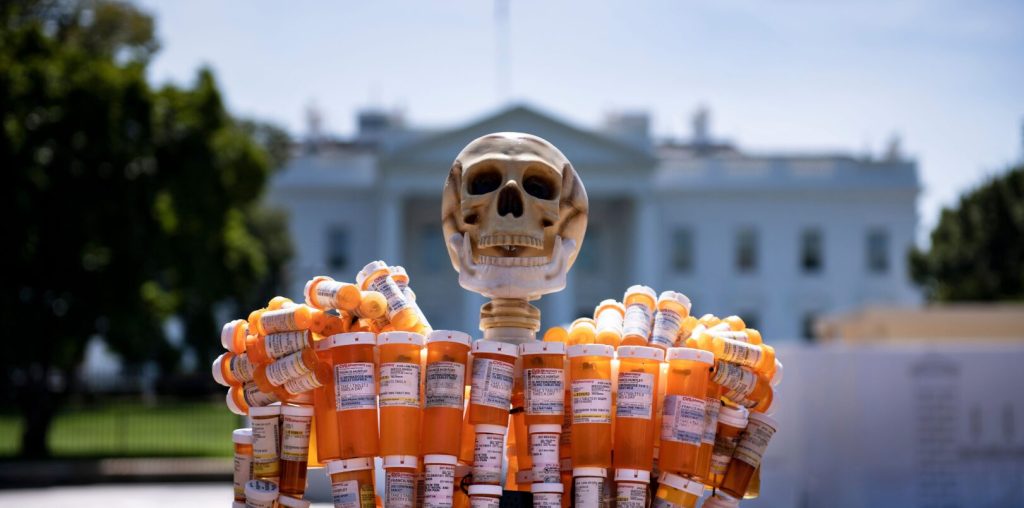Drug overdose deaths dropped a record amount during the past year, according to provisional data the Centers for Disease Control and Prevention released Wednesday.
The CDC reported that 94,758 individuals died because of drug overdoses in the 12-month period ending May 2024 — a 15 percent drop from the previous 12-month period. The agency estimates that number may rise to 98,820 when finalized, which would be a 12.7 percent drop.
Rahul Gupta, director of the White House Office of National Drug Control Policy, commended the data, which showed a decline in nationwide drug-related deaths for the sixth month in a row.
“We are at a critical inflection point,” said Gupta. “This new data shows there is hope, there is progress, and there is an urgent call to action for us all to continue working together across all of society to reduce drug overdose deaths and save even more lives.”
Synthetic opioids like fentanyl are still involved in the majority of drug overdose deaths.
Wednesday’s data highlighted regional differences in efforts to successfully curb drug-related deaths.
North Carolina reported the largest change in overdose deaths, seeing a 48.8 percent drop over the previous period. Eight other states — Nebraska, Pennsylvania, Michigan, Ohio, Oklahoma, Virginia, Delaware and New Jersey — also reported at least a 21 percent decrease in overdose deaths.
But several Western states bucked the trend and reported increases in drug-related deaths. Alaska led with a 36.1 percent increase in overdose deaths. Four other states — Oregon, Nevada, Utah and Washington — saw between 5 percent to 15 percent increases in deaths.
Reported drug fatalities over a 12-month period topped 100,000 for the first time in 2021, during the COVID-19 pandemic, and efforts to reverse that trend have produced mixed results. In contrast, overdose deaths in the 12-month period ending in January 2019 were about 68,000.
Congress renewed some of the lapsed provisions of the sweeping 2018 opioid prevention, treatment and enforcement law in its March omnibus spending measure but never reached a consensus on broader elements of either chamber’s bipartisan reauthorization packages.
Reps. Paul Tonko, D-N.Y., and Michael R. Turner, R-Ohio, announced Wednesday that they had sent inquiries to more than two dozen hospitals, insurance plans and groups representing pharmacies, pharmacists and medical providers as part of efforts to reduce barriers to receiving opioid use disorder treatment.
Efforts to increase public awareness and access to naloxone, used to reverse opioid overdoses, have seen some success. A study published in JAMA Network Open on Monday found that between June 2020 and June 2022 naloxone administered by emergency medical services staff dropped 6.1 percent, while naloxone administered by laypeople increased 43.5 percent.
Separately, the Food and Drug Administration approved the first over-the-counter naloxone spray in 2023.

